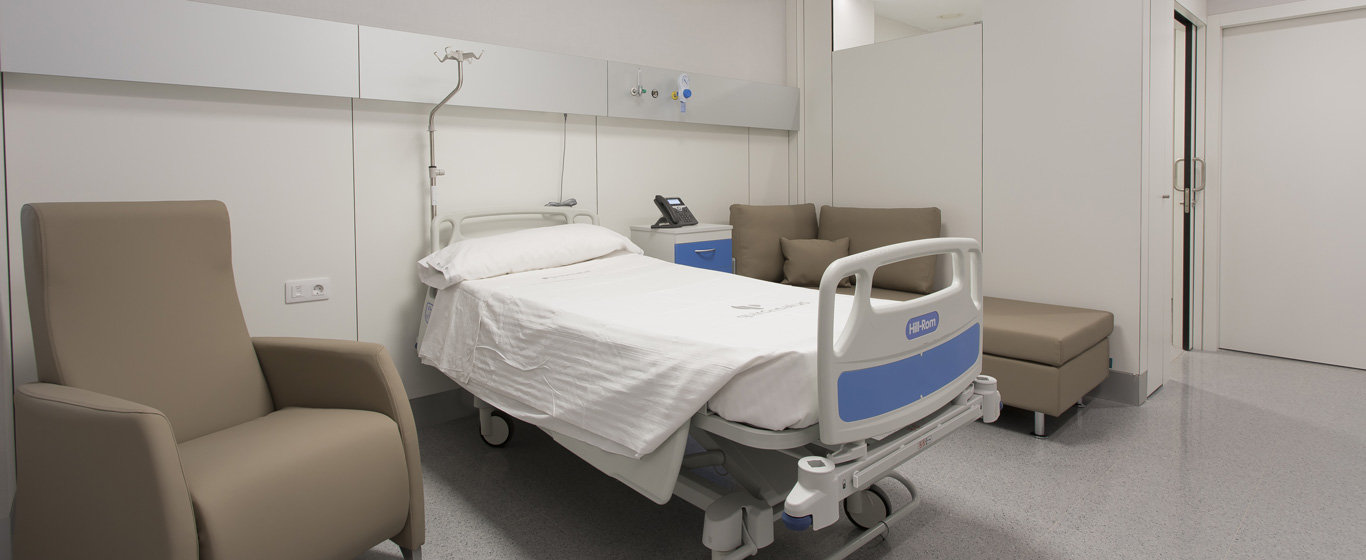Ulcerative Colitis
Does ulcerative colitis have a definitive cure? All about the causes, symptoms, and most effective treatments for this disease.
Symptoms and Causes
Ulcerative colitis is a chronic disease in which the mucosa of the rectum and colon becomes inflamed, and ulcers may appear, hence its name. It combines asymptomatic periods with flare-ups that can significantly decrease the patient's quality of life.
Depending on its extent, it can be classified as:
- Ulcerative proctitis: when it only affects the rectum.
- Left-sided colitis: if it also affects the end of the large intestine.
- Pancolitis: when it affects almost the entire colon.
There are also different degrees of activity, from the quiescent phase, in which there are no symptoms, to severe colitis, which affects the whole body.
The causes of ulcerative colitis are still unknown, and no definitive cure has been found. However, there are very effective treatments for the symptoms, which sometimes disappear for long periods.
Symptoms
The most common symptoms of ulcerative colitis are:
- Diarrhea, which may be accompanied by mucus and blood.
- Urgency to have a bowel movement.
- Feeling of incomplete evacuation.
- Abdominal pain.
- Fever.
- Weight loss.
Causes
The cause of ulcerative colitis is unknown. The most accepted theory is that an exaggerated immune system response occurs, attacking the intestine in genetically predisposed individuals when certain environmental factors negatively influence.
Risk Factors
There is an increased likelihood of having ulcerative colitis if there is a family history. A diet high in animal fats and a sedentary lifestyle also negatively affect the condition.
Complications
Having ulcerative colitis increases the risk of colon cancer. It is estimated that the likelihood increases after ten years from the initial diagnosis. For this reason, regular check-ups, including endoscopies and biopsies, are recommended even during periods of remission, to detect it early.
Other complications that may occur include:
- Swelling of the joints, skin, or eyes.
- Dehydration.
- Osteoporosis.
- Colon perforation.
Which Doctor Treats Ulcerative Colitis?
The diagnosis and treatment of ulcerative colitis involve specialists in digestive systems, radiologists, general surgeons, and notably the role of specialized nursing in the disease follow-up. Other specialties that may add value include Endocrinology and Nutrition, Psychiatry and Psychology, Dermatology, and Rheumatology.
Diagnosis
Ulcerative colitis is diagnosed by studying both the patient's medical history and symptoms, as well as performing the following specific tests:
- Blood tests: to detect signs of anemia, infection, or inflammation.
- Stool analysis: in addition to ruling out other pathologies with similar symptoms, a stool test can detect the presence of white blood cells or proteins, which may indicate ulcerative colitis.
- Colonoscopy: provides images of the interior of the colon. In addition to diagnosing ulcerative colitis, it is also used for early detection of colon cancer.
- X-ray or CT scan: used to check the condition of other organs within the abdominal cavity. It is often done to detect complications such as perforations, stenosis, or abscesses.
Treatment
Currently, there is no definitive cure for ulcerative colitis. Treatments focus on making the symptoms remit for as long as possible and alleviating them when present. The most effective approaches are:
- 5-ASA (oral aminosalicylates): used to reduce intestinal inflammation.
- Corticosteroids and immunomodulators: these are used when patients do not respond adequately to the previously mentioned medications. They help inhibit the immune system.
- Biological treatments and new molecules: aimed at specific components of the immune system.
- Proctocolectomy: a surgical procedure in which the large intestine is removed, and it can be of two types:
- With ileal pouch-anal anastomosis: the colon and rectum are removed, and an internal pouch is created to store stool, which can be evacuated through the anus. This is the most common procedure and is usually done in two stages, as an external pouch is temporarily placed to allow the internal pouch to heal properly.
- With terminal ileostomy: in addition to removing the colon and rectum, the anus is also removed. A small hole is made in the skin of the abdomen (called a stoma) to expel waste. The stool is collected in an external bag attached to the skin around the stoma.

































































































